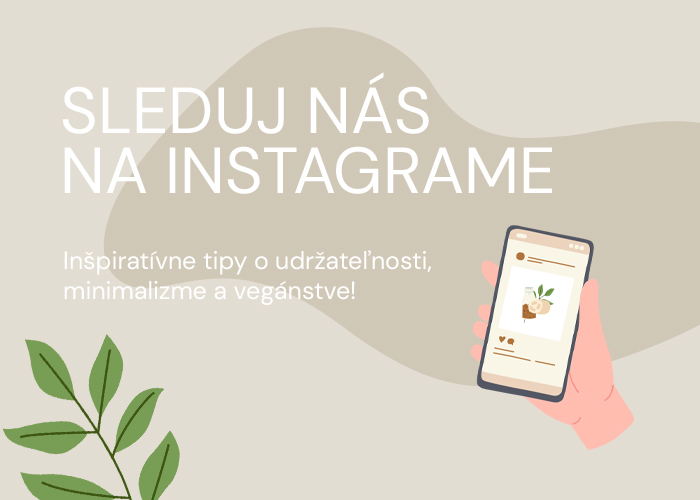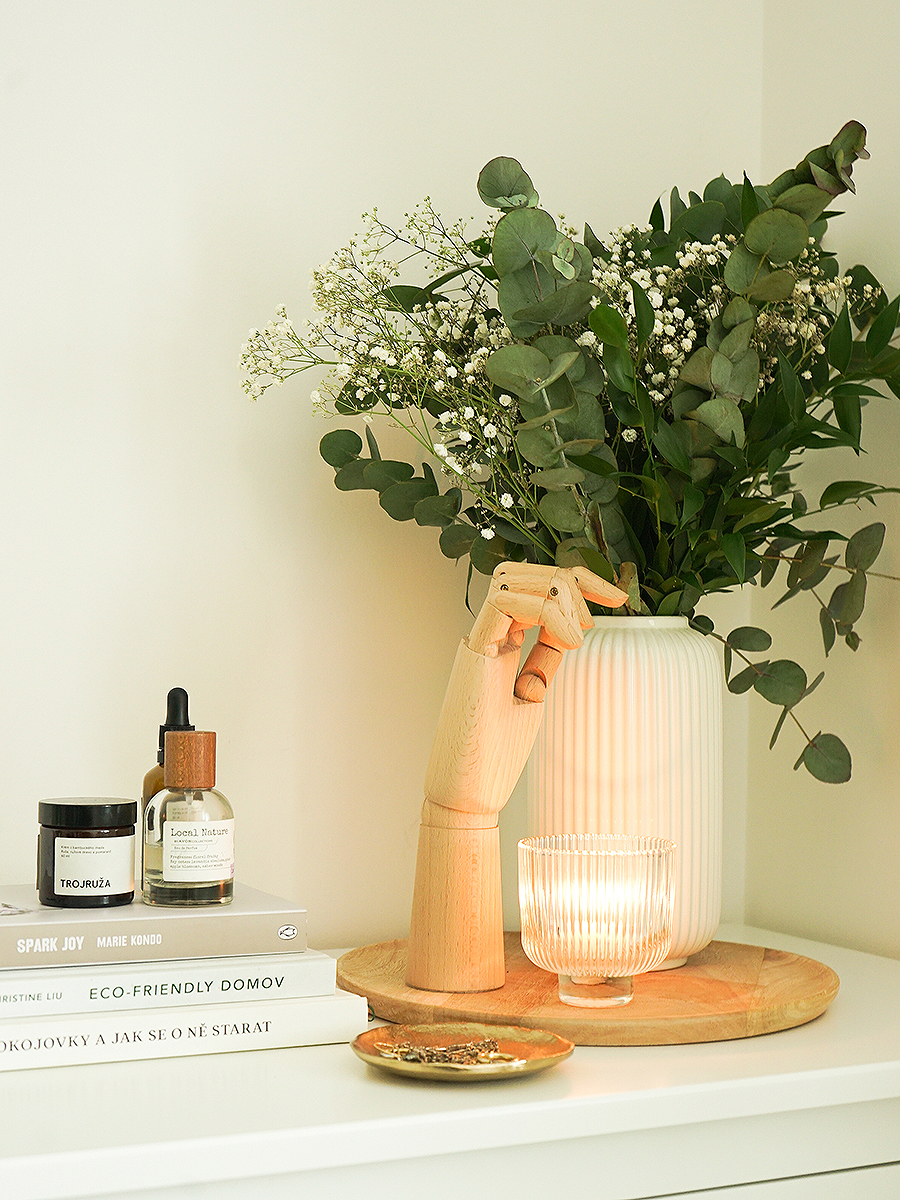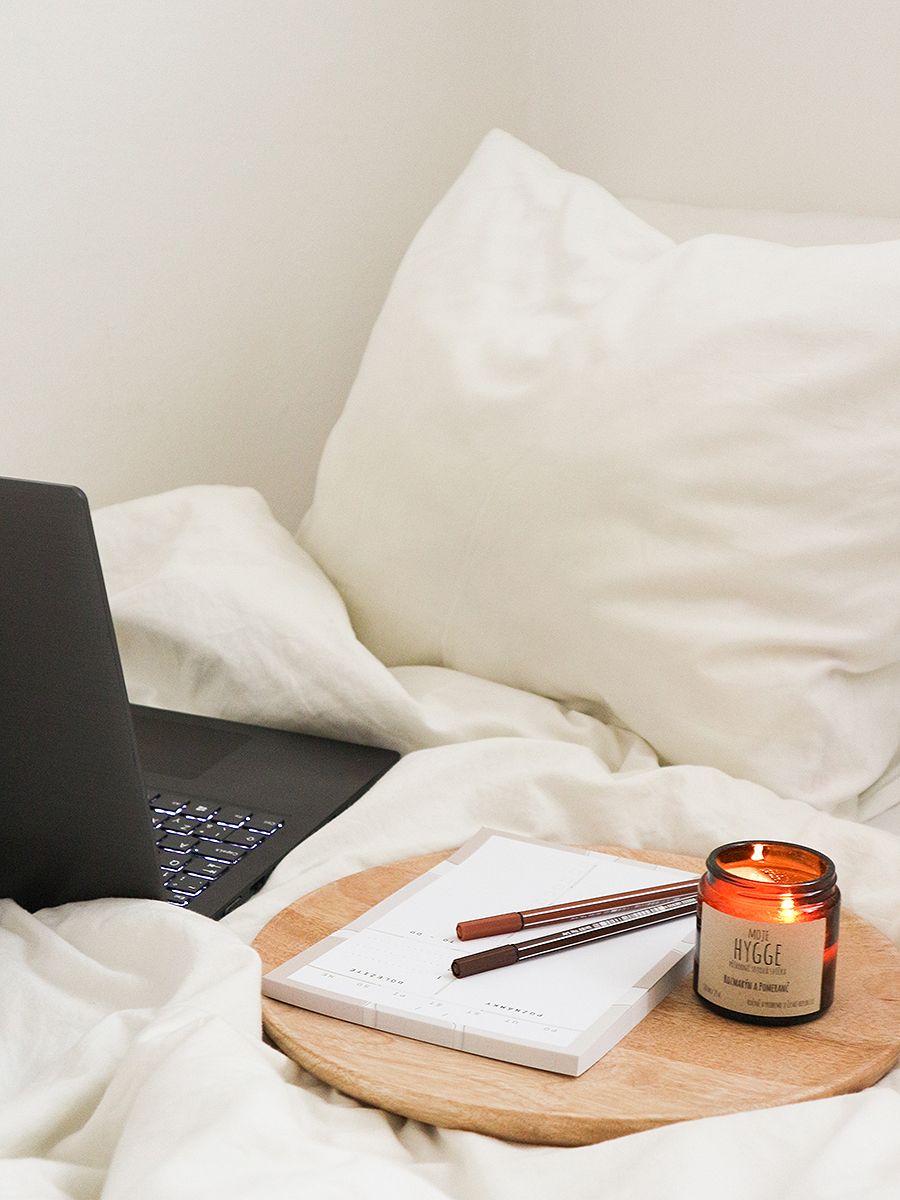
I have written a few articles about minimalism over the past year. I wrote tips on how to start with minimalism, what to get rid of, what are the most common mistakes and even why be a minimalist. But the area I have not yet covered is what actually minimalism is. Of course, there are a few definitions and all of them have the same point, but I still feel like people have a misconception about this lifestyle.
So what is minimalism?

White walls. No decorations. A mattress laid on the floor. A table with one chair, small cabinet. A small apartment in which an adult lives alone, without children. Without a car. All the things they own fit into one larger backpack. They have only black clothes and two pairs of shoes. They don’t have a “proper” job. They stay in one city for no longer than six months.
This is how many imagine minimalism. We shake our heads on people who actually live like this while repeating that we would never be able to do it. Yes, because we can call this extreme minimalism. And I’ll tell you right away that only a low percentage of people who practice this lifestyle live this way.
Even under my articles on this subject, I have encountered a reaction that although it’s great, they “could never be a minimalist”. I’m not surprised by this if you imagine this lifestyle to be like I described it above. Although minimalism can lead to such extreme, it’s not what its perfect result should be like.
Minimalism means something different for everyone. Because we have different interests, different hobbies, we like different things and activities. We simply have different lives. And what one considers to be useless and would immediately get rid of it, someone else can’t imagine a life without it.
Example. Someone threw away any makeup a long time ago; because they didn’t need it. They can live without it. But someone else feels more confident with a little bit of soft blush, mascara and defined eyebrows. And they enjoy doing makeup, therefore they need a few products. Someone can’t even imagine having a mattress on the floor; other sold their bed frame months ago and they don’t miss it at all. Two pants, three T-shirts and shoes are enough for someone, another has a job, goes to school and works out regularly; and for each they need a different style of clothing, so they need a bigger wardrobe with more choices.
Minimalism is a journey. What we consider to be a vital necessity now may be a useless things in two or three months. It doesn’t, but it can. A person who couldn’t even think about sleeping on a floor is suddenly moving, they sell the bed frame because it doesn’t fit in the new bedroom, but they didn’t find a new one yet, so in a new apartment they sleep on the ground for a few nights – and only after a month they find out that it doesn’t affect sleep quality in any way, and they basically don’t need a bed frame. Or vice versa – someone gives their bed frame to a friend in a decluttering rage, they sleep on the ground for two months, but they can’t get over the fact that they sleep on the ground, and they buy a new bed frame. The same goes for clothes, make-up, books, decorations, photographs, various kitchen appliances, cosmetics, shoes, cleaners, cups and plates, sentimental stuff and so on.

The point of minimalism is freedom. Freedom from the consumer world. We live in a society where the richest and happiest people live in large houses, have several cars, a large wardrobe, and the number of things they own surpasses hundreds, even thousands. Thanks to ads and stores, we feel that we need ten monochromatic blouses and five new pairs of sandals each summer. Twenty different creams because the eye area and left elbow require special care. We simply have to buy new and new things again and again, because we feel that that will make us cool, we will be important, we will look rich.
This way of living has only one result – constant stress. No one can see us in the same dress in public twice in a row. Every other year we need a new car because the previous one is old. If we don’t follow fashion trends, go to the manicure every week and to the hairdresser once a month, people will think we don’t care for ourselves. And yet, it’s completely unnecessary. We attribute feelings to inanimate objects. We ourselves attach value to them, try to immortalize memories in them. We don’t throw out anything because maybe one day we will need a second hand mixer with three extensions.
Minimalism is about enjoying life, not things. Searching for experiences, traveling, getting to know people, new places; not about buying and filling our home with uselessness that will only bring us a feeling of happiness for one day. The point of minimalism is to own only what we need, that is things that make life easier for us, but do not create chaos, do not accumulate, do not cause stress. Therefore, a minimalist lifestyle can also result in white walls, a mattress on the ground and one backpack; but it can also be the normal home of a happy family of four with a dog. But you won’t find any uselessness in it.

V priebehu posledného roka som článkov o minimalizme napísala hneď niekoľko. Spísala som tipy, ako s minimalizmom začať, čoho sa zbaviť, aké sú najčastejšie chyby a aj to, prečo byť minimalista. No oblasť, ktorú som doteraz stále nepokryla, je to, čo je vôbec minimalizmus. Samozrejme, definícií je zopár a všetky majú rovnakú pointu, no aj tak mám pocit, že ľudia majú o tomto životnom štýle mylnú predstavu.
Čo je teda minimalizmus?

Biele steny. Žiadne dekorácie. Matrac položený na zemi. Stôl s jednou stoličkou, malá skrinka. Malý byt, v ktorom býva dospelá osoba, sama, bez detí. Bez auta. Všetky veci, ktoré vlastní, sa vojdú do jedného väčšieho ruksaku. Má len čierne oblečenie a dva páry topánok. Nemá “poriadnu” prácu. V žiadnom meste sa nezdrží dlhšie ako šesť mesiacov.
Takto si predstavujú minimalizmus mnohí. Všetci uznanlivo prikyvujeme nad ľuďmi, ktorí takto žijú, zatiaľ čo opakujeme, že my by sme to nezvládli. Áno, pretože toto môžeme označiť za extrémny minimalizmus. A rovno vám poviem, že takto žije len nízke percento ľudí, ktoré praktizuje tento životný štýl.
I pod svojimi článkami zameranými na túto tému som sa stretla s reakciou, že hoci je to super, oni by “minimalistom byť nikdy nemohli”. Čomu sa vôbec nečudujem, keď si tento životný štýl predstavujete tak, ako som ho opísala vyššie. Hoci minimalizmus môže viesť až do takého extrémizmu, nie je to to, aký by mal byť jeho dokonalý výsledok.
Minimalizmus znamená pre každého niečo iné. Pretože máme iné záujmy, iné koníčky, bavia nás rôzne veci a aktivity. Jednoducho máme rozdielne životy. A to, čo jeden považuje za zbytočnosť a hneď by sa jej zbavil, bez toho si niekto iný nevie predstaviť život.
Príklad. Niekto už dávno vyhodil akýkoľvek make-up; pretože mu ho absolútne netreba. Vie žiť aj bez neho. No niekto sa vďaka jemnej lícenke, maskare a zvýraznenému obočiu cíti sebavedomejšie. A líčenie ho baví, preto zopár produktov potrebuje. Niekto si ani za svet nevie predstaviť, že by mal matrac rovno na zemi; iný predal rám postele už pred mesiacmi a vôbec mu nechýba. Niekomu stačia dvoje nohavice, tri tričká a topánky, ďalší má zamestnanie, chodí do školy a pravidelne cvičí; a na každé potrebuje iný štýl oblečenia, preto potrebuje bohatší šatník s väčším výberom.
Minimalizmus je cesta. To, čo považujeme za životnú nevyhnutnosť teraz, môže byť zbytočnosťou o dva či tri mesiace. Nemusí, ale môže. Človek, ktorý nevedel ani pomyslieť na to, že spal na zemi, sa zrazu sťahuje, rám postele predá, pretože sa do novej spálne nehodí alebo nezmestí, no ešte nenašiel nový, preto v novom byte pár nocí spí iba na matrace na zemi – a až po mesiaci zistí, že to nijakým spôsobom neovplyvňuje kvalitu spánku a rám postele mu v podstate vôbec netreba. Alebo opačne – niekto v “záchvate” vyhadzovania a upratovania daruje rám postele kamošovi, dva mesiace spí na zemi, no nevie sa preniesť cez to, že spí na zemi, a kúpi si nový rám postele. To isté platí aj o oblečení, make-upe, knihách, dekoráciách, fotografiách, rôznych kuchynských prístrojoch, kozmetike, topánkach, čistiacich prostriedkoch, šálkach a tanieroch, sentimentálnych veciach a podobne.

Pointou minimalizmu je sloboda. Sloboda od konzumného sveta. Žijeme v spoločnosti, kde sú najbohatší a najšťastnejší ľudia, ktorí bývajú vo veľkých domoch, majú niekoľko áut, veľký šatník a počet vecí, ktoré vlastnia, predstavuje stovky, ba až tisíce. Vďaka reklamám a obchodom máme pocit, že potrebujeme desať jednofarebných blúzok a päť nových párov sandál na každé leto. Dvadsať rôznych krémov, pretože očné okolie a ľavý lakeť si vyžadujú špeciálnu starostlivosť. Jednoducho musíme dookola kupovať nové a nové veci, pretože máme pocit, že vďaka tomu budeme cool, budeme dôležití, budeme vyzerať bohato.
Takýto spôsob života má len jeden výsledok – večný stres. Nikto nás nemôže vidieť v spoločnosti v rovnakých šatách dvakrát po sebe. Každý druhý rok potrebujeme nové auto, pretože to predošlé je už staré. Ak nebudeme sledovať módne trendy, každý týždeň chodiť na manikúru a ku kaderníčke raz za mesiac, budú si ľudia myslieť, že sa o seba nestaráme. A pritom je to všetko úplne zbytočné. Pripisujeme city neživým predmetom. My sami im prikladáme hodnotu, snažíme sa v nich zvečniť spomienky. Nič nevyhadzujeme, pretože možno raz príde situácia, kedy budeme potrebovať druhý ručný mixér s troma nadstavcami.
Minimalizmus je o tom tešiť sa zo života, nie z vecí. O vyhľadávaní zážitkov, cestovaní, spoznávaní ľudí, nových miest; nie o kupovaní a plnení domova zbytočnosťami, ktoré nám prinesú pocit šťastia iba na jeden deň. Pointou minimalizmu je vlastniť len to, čo potrebujeme, teda veci, ktoré nám život uľahčujú, ale nevytvárajú chaos, nehromadia sa, nespôsobujú stres. Preto výsledkom minimalistického životného štýlu môžu byť aj biele steny, matrac na zemi a jeden batoh; no tiež to môže byť aj normálny domov šťastnej štvorčlennej rodiny so psom. Ale nenájdete v ňom žiadne zbytočnosti.





